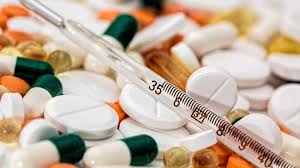Indian Pharmaceuticals Sector Forecasts 8-10% Revenue Growth in Fiscal 2024: CRISIL
The Indian pharmaceuticals sector is poised for robust revenue growth of 8-10% this fiscal year, building on last year's approximately 10% increase. This growth is attributed to strong exports to regulated markets, a rebound in

The Indian pharmaceuticals sector is poised for robust revenue growth of 8-10% this fiscal year, building on last year’s approximately 10% increase. This growth is attributed to strong exports to regulated markets, a rebound in semi-regulated markets, and consistent domestic demand.Improved Operating Margins
As a result of enhanced operating leverage and reduced pricing pressures in the U.S. generics market, operating margins are expected to improve by 70-80 basis points, reaching around 22.5% this fiscal year. This follows a margin increase of 100 basis points in the previous fiscal year. The ongoing strong cash generation, combined with low financial leverage, is anticipated to maintain stable credit profiles for industry players, even as companies pursue strategic acquisitions in targeted therapeutic areas.
A CRISIL study encompassing 190 drug manufacturers, which account for nearly half of the Rs 4.1 lakh crore market last fiscal, supports these forecasts.Revenue Breakdown
The pharmaceutical revenue landscape is almost evenly divided between domestic sales and exports. Domestic formulation revenue is derived equally from chronic and acute therapeutic segments. In exports, formulations and bulk drugs make up approximately 80% and 20%, respectively. Notably, 58% of formulation exports are directed to regulated markets, while 42% go to semi-regulated markets.Export Growth Projections
Aniket Dani, Director of CRISIL Market Intelligence & Analytics, stated, “Formulation exports are expected to grow by 12-14% in rupee terms this fiscal.” The regulated markets of the U.S. and Europe are projected to see growth of 13-15%, fueled by ongoing drug shortages, easing pricing pressures in the U.S. generics sector, and a volume increase from new product launches. Additionally, a shift towards niche molecules and specialty products is expected to drive this growth. Conversely, exports to semi-regulated markets are forecasted to grow by 8-10%, supported by strengthening local currencies and an improving economic landscape in specific African and Latin American countries.Domestic Revenue Outlook
Domestic revenue is anticipated to grow by 7-9%, primarily driven by price increases, with volume growth facilitated by new product launches. Price increases are expected to stem mainly from non-NLEM (National List of Essential Medicines) portfolios, as the price growth for NLEM products remains subdued due to minimal changes in the Wholesale Price Index (WPI) last fiscal year. The chronic segment is projected to be the key revenue driver, driven by a rise in lifestyle-related diseases and heightened health awareness post-pandemic.Financial Health and Growth Strategies
With steady revenue growth and healthy operating profits, the working capital cycle remains stable at approximately 50 days, ensuring strong cash flows. The financial risk profiles of CRISIL-rated players are stable, with a debt-to-EBITDA ratio of 0.9 times and an interest coverage ratio exceeding 12 times for fiscal 2025.
Aditya Jhaver, Director of CRISIL Ratings, remarked, “With strong cash flows and healthy balance sheets, players are increasingly focusing on inorganic growth opportunities in the API and formulation spaces. This strategy aims to diversify product portfolios or consolidate market share in targeted therapeutic areas.” Although these acquisitions may involve significant debt funding and a temporary dip in financial risk profiles, the overall credit profiles are expected to benefit from improved business risk profiles, with immediate contributions from acquired entities.Conclusion
The Indian pharmaceuticals sector is on track for a promising fiscal year, supported by a favorable combination of domestic and export growth, improved operating margins, and a strategic focus on both organic and inorganic growth. As the industry continues to evolve, stakeholders can anticipate significant developments that will further enhance the sector’s robust position in the global pharmaceutical landscape






